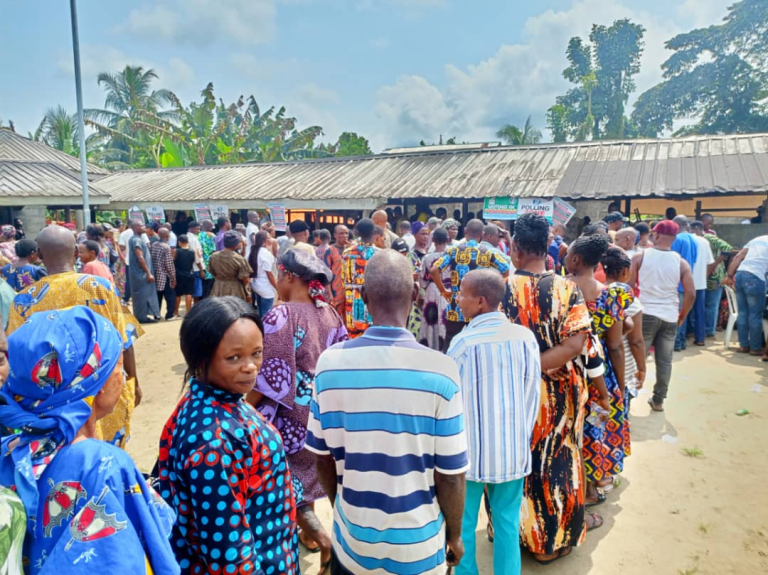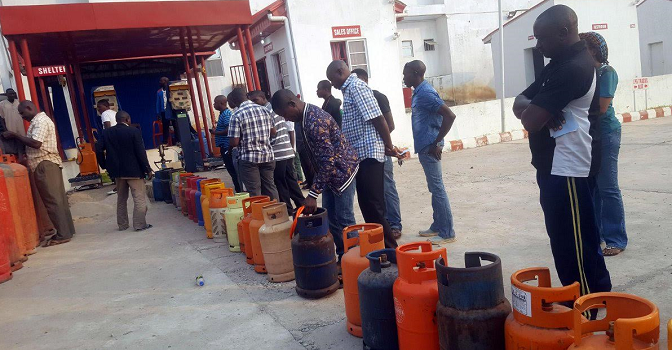
Rivers State Local Government Election 2025
- Nigeria News
- 31.08.2025
- No Comment
- 556
Rivers State Local Government Election 2025

As one of the most politically vibrant states in the Niger Delta, Rivers State’s grassroots elections often shape the political direction of the state and influence future governorship and national politics.
Today, voters across the 23 local government areas (LGAs) are heading to polling units to decide who becomes their council chairmen and councillors.
This article provides in-depth coverage of the Rivers State Local Government Election today, highlighting candidates, party participation, security arrangements, challenges, controversies, and what to expect as results begin to emerge.
Tinubu Approves Lifetime Salary for Retiring Senior Officers – Interior Minister
FG Raises Passport Fees to N100,000, N200,000 Effective Sept 1
Local government elections in Nigeria serve as the foundation of democracy. In Rivers State, the stakes are particularly high because the grassroots is often the battleground between the ruling party and the opposition.
The Rivers State Independent Electoral Commission (RSIEC) is conducting the election, which is expected to usher in a new wave of council leaders who will oversee governance at the grassroots level for the next three years.

For residents, this election determines who will control local projects, primary healthcare, education at the LGA level, and allocation of federal funds to local communities.
Hence, the 2025 local government polls are more than just politicsthey are about the future of governance at the community level.
- PDP (People’s Democratic Party): The ruling party in Rivers State, traditionally dominant in grassroots politics. PDP candidates are fielded across the 23 LGAs.
- APC (All Progressives Congress): The main opposition, looking to make inroads despite internal divisions and past electoral challenges.
In addition, smaller parties like the Labour Party (LP), Social Democratic Party (SDP), and Accord Party have also fielded candidates, though their influence may vary depending on the local government.
Analysts suggest that this election will largely test the popularity of the ruling PDP and the strength of opposition forces in Rivers politics ahead of the 2027 general elections.

Election Day: Rivers State Local Government Election Today
As of this morning, voters have been trooping out to polling units across Port Harcourt, Obio-Akpor, Ikwerre, Degema, Ahoada, Ogba/Egbema/Ndoni, and other local governments.
Reports show that election materials arrived in most polling stations on time, although some delays were recorded in riverine areas due to logistics.
Security operatives, including the Nigeria Police Force, NSCDC, and military personnel, have been deployed to ensure peaceful voting.
Governor Siminalayi Fubara earlier urged voters to conduct themselves peacefully and assured that security agencies will protect lives and property throughout the election.
However, today’s turnout in Rivers appears encouraging, especially in urban LGAs like Port Harcourt City and Obio-Akpor.
Civil society groups and observers have also mobilized to encourage grassroots participation, stressing that the local government tier is closest to the people and should not be ignored.
- Allegations of bias: Opposition parties have raised concerns about the neutrality of RSIEC, accusing it of favoring the ruling party.
- Logistics delays: Some polling stations, especially in riverine areas, received materials late due to transport challenges.
- Security fears: Isolated reports of violence and voter intimidation were noted in some LGAs, though authorities have moved to contain the situation.
These issues raise concerns about the credibility of the process, but RSIEC insists the election remains free, fair, and credible.

For the ruling PDP, retaining dominance across all LGAs will strengthen its grip on Rivers politics, while the APC hopes to secure at least a few LGAs to prove its relevance ahead of 2027.
Furthermore, the election is seen as a litmus test for Governor Sim Fubara’s influence in the state after months of political tension.
His ability to deliver a peaceful and credible local government election will be seen as a measure of his leadership and political strategy.
Civil society organizations also called on political parties to respect the outcome and avoid post-election violence.
“What happens in Rivers State is not just about local politics; it reflects Nigeria’s democratic progress at the grassroots level,” one observer noted.
The credibility of this process will play a major role in determining how the public perceives local democracy in Rivers State.
Regardless of the outcome, today’s election demonstrates the resilience of Nigerian democracy at the grassroots, even in the face of challenges.
While the process has its flaws, it is a crucial step in strengthening local governance and ensuring that power truly flows from the people.
As results emerge, stakeholders hope for fairness, peace, and accountability. The people of Rivers State deserve nothing less than leaders who will deliver development and good governance at the community level.







